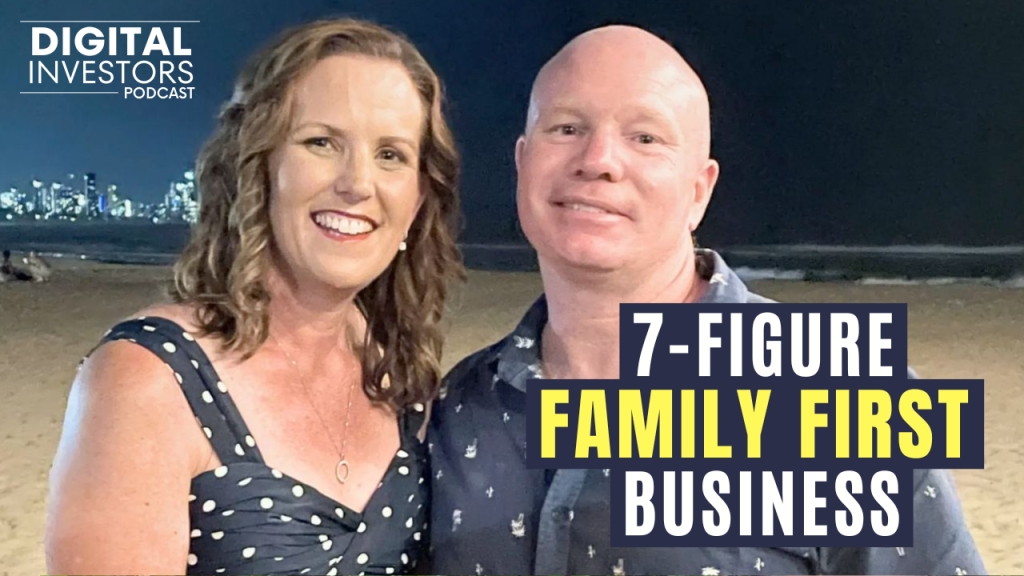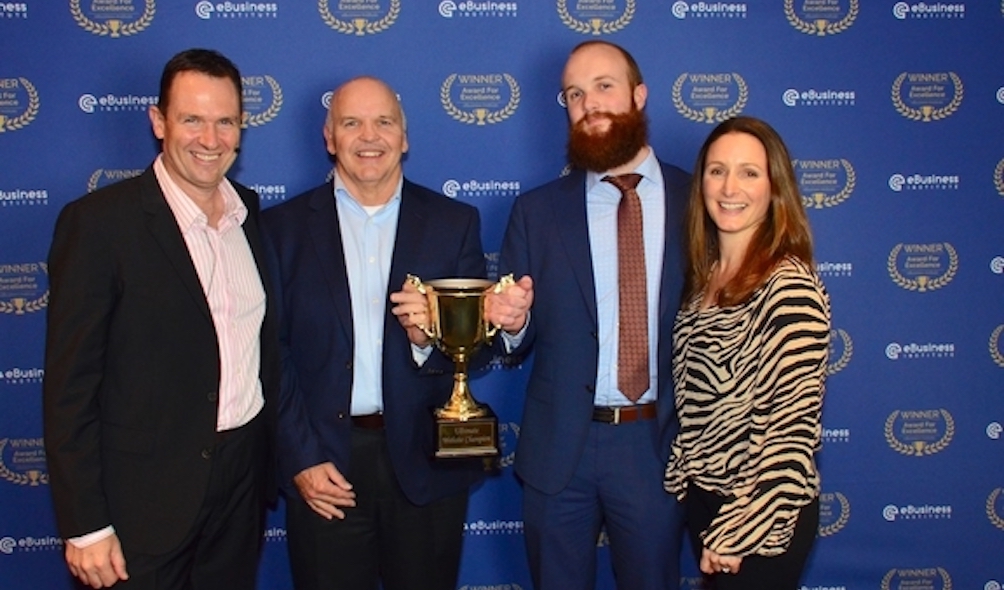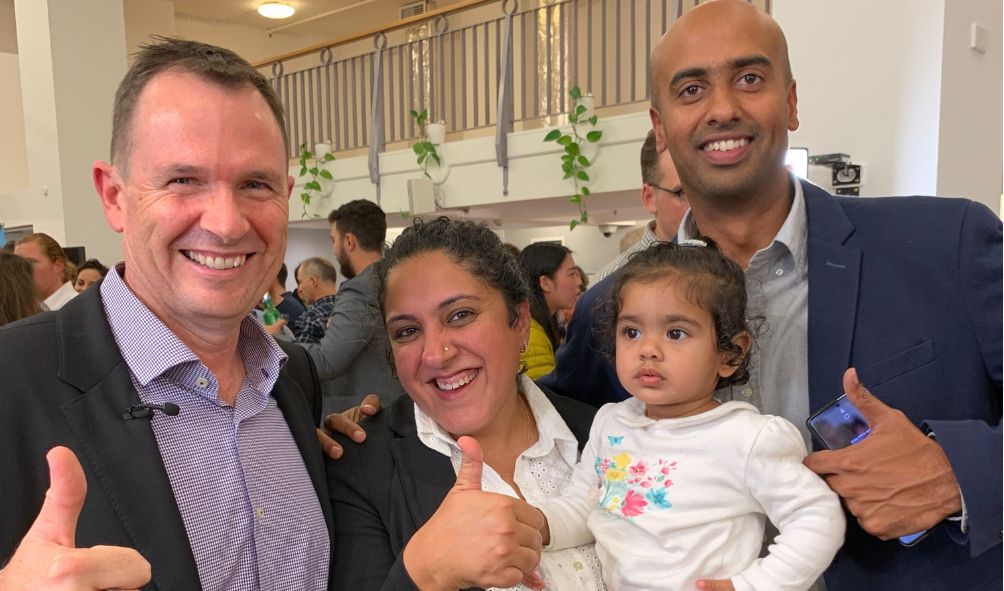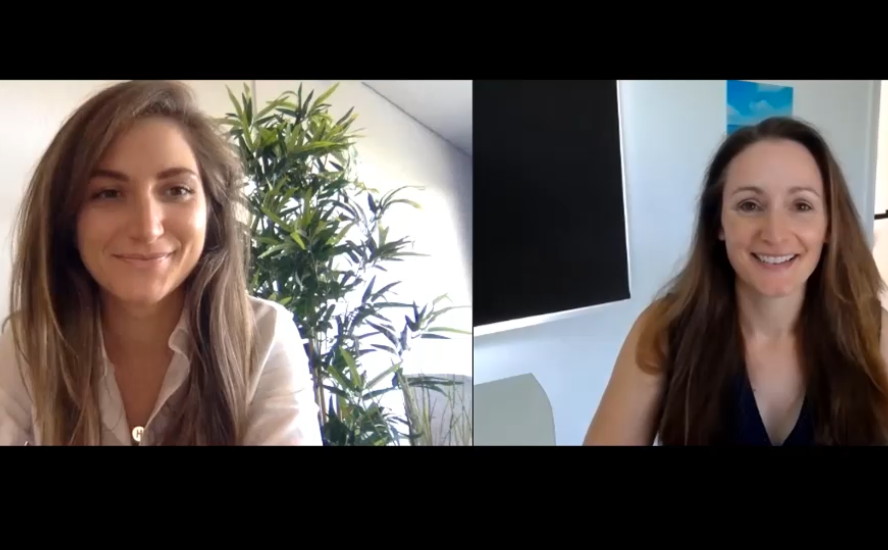If you’re a burnt-out corporate with young kids, perhaps building a 7-figure Digital Agency seems like a far-fetched dream.. But as Pete & Renee proved – it CAN be done! Here’s how they did it…
“I earned a lot of money, but I had no time for my family.”
That was Renee’s life when she worked as an executive, travelling 3 out of 4 weeks a month while her husband stayed at home with their kids.
Now Renee and her husband, Pete earn a lot more money. They don’t miss any family activities. In fact, they go to all of their kids events and they go on a holiday every single school holiday. Not something you can do when you work for someone else.
How did they make this shift from corporate to starting and building a successful business that gives them the financial and time freedom while raising 3 young kids?
In this interview, Renee and Pete is going to share it all, including how they got started, why they ran with the digital agency strategy, what services they offered that gave them a steady income stream, and much much more. So click below to hear their insights or read the article below.
Matt Raad: If you’re a burnt-out corporate with young kids, then you’ll want to be reading this interview. It can be a tricky time in life, and a lot of us have been there.
Today I’m speaking to an amazing couple who were just that – they were burnt-out corporates with young kids. They started as complete beginners online, but completely retrained in digital skills with us. Today, they run a seven-figure digital agency.
Not only that, they are a multi-award winning digital agency on the Gold Coast. And they’re winning some of the biggest digital agency awards out there in Australia.
Pete and Renee are now “living the dream” with the lifestyle they’ve created in the beautiful beaches of Burleigh on the coast of Queensland.
A lot of our members know their story. But, for the rest of our community, I want to share the inspiring journey of these two legends. They are now moving up the ranks in terms of Digital Agency, and are winning awards against some of the biggest, more established agencies out there.
So, welcome, Pete and Renee.
How Pete & Renee started as burned out corporates with zero digital skills
Matt: Your story wasn’t always like this. So, how did you start? Where was your skill level when you began your journey with us online?
Renee: Well, I’d like to say my skill set was a little bit higher than Pete’s. He was quite limited with his online skills, whereas I had developed some through my work. But overall, both our skills were quite limited when we first started.
Renee was juggling being a mum to 3 young kids and working a high-level executive role
Matt: What were you doing at the time, Renee, when you first started training with us?
Renee: I was an executive with the Commonwealth Bank. I had a national role, so I was travelling three weeks a month around Australia, working with my staff.
Matt: So, apart from holding a full-on senior role, I’m assuming you were earning a very high wage. But more importantly, particularly for the mums reading this, could you tell us about your family situation at that point? You were away for three weeks of the month, so where were you with your family during that time?
Renee: Initially, when Pete ventured into the online field, we had one daughter. And then we had our next child when she turned three.
I went back to work pretty much straight after our first daughter was born, and Pete became an amazing stay-at-home dad and loved it. But then, he needed to find another passion. That’s when he looked into digital marketing.
He previously had a law degree and was a detective in the police force, but he didn’t want to do that anymore. And I was away three weeks out of four every month, and it was very hard in the weeks that I was at home.
I would often receive a text message saying, “Don’t come in. She’s just settled.” It wasn’t until we had our second child that I went on maternity leave. Then it hit me like a brick wall; I didn’t know who our daughter was, and she didn’t know who I was. I loved the corporate lifestyle, but I had no family connection.
So, when we had our second child, it was a life-changing decision. We needed to find something that suited our family, where I wasn’t always away from home. That’s when I started learning more about the online world and fell in love with it too.
While we were progressing through that, we then had our third child and started the Digital Agency business at the same time.
Matt: Seriously, well done because that’s a pretty amazing story. And Renee, I want to say a big thank you for sharing that because a lot of mums are reading this and it just blows them away. Your story gives them a lot of hope that it can be done.
Pete was studying law and was a complete beginner online
Matt: Pete, let’s jump to you. Renee briefly mentioned your life situation back then. You were an awesome stay-at-home dad, and had a law degree. You were super smart – just maybe not so much with computers 🙂
Were you burned out back then as well? And were you also looking for a career change?
Pete: For the benefit of your readers who might be a little bit concerned about starting at a low point, my online learning literally began at the computer’s “on-off” button!
I’ve never forgotten our poor coach, Joe, who would cringe every time he heard my name.
Matt: Yes, that’s Joe Burrill, who’s now a legendary website broker. Joe was Pete’s coach when he worked for us all those years ago.
I forgot that he was helping you go beyond just turning a button on and off for a computer because you did struggle a bit. I also recall doing a few calls with you for some of your sites, Pete, and it was pretty challenging for you back then to build websites.
Pete: I just didn’t have that type of background, Matt. My background was obviously in law, so it was a challenge for me.
But yes, you’re right. Back then, I was definitely burnt out doing what I was doing. I wasn’t enjoying it anymore and was just going through the motions.
We were very fortunate on the home-front, because when Renee decided to go back to work after having Chelsea, it forced my hand a little bit. I really didn’t need much pushing to leave the police force, with the role that I was in.
Matt: Yes, you were in a pretty full-on role working as a detective. I’d imagine that’s a pretty demanding role.
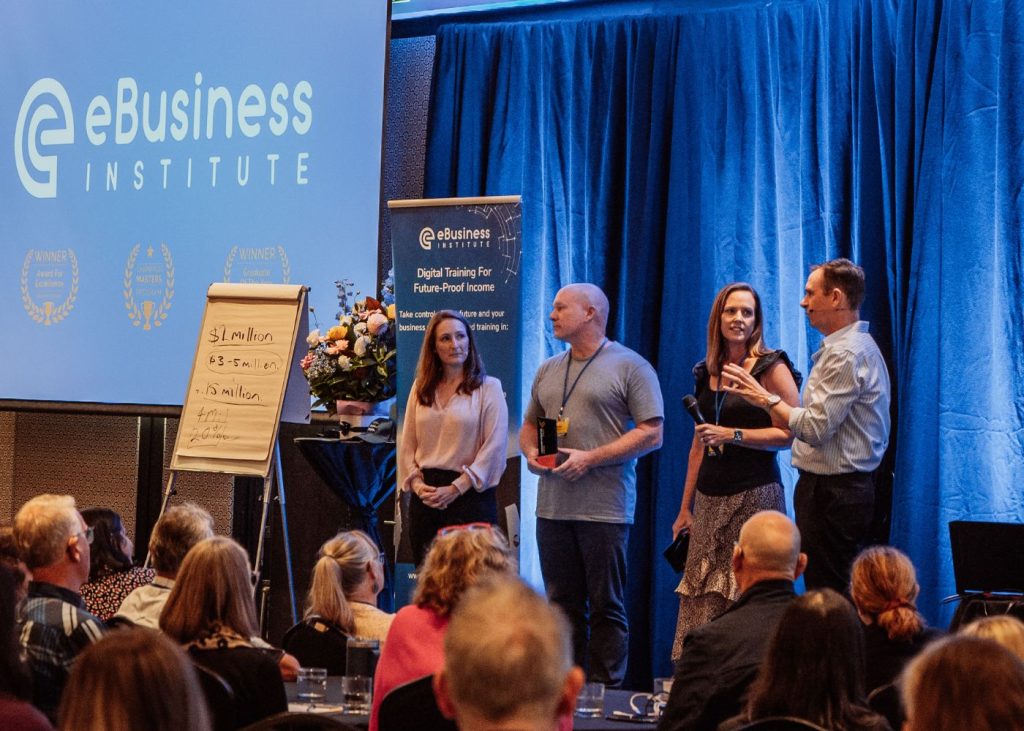
They started retraining in digital skills 10 years ago
Matt: So, let’s put it in perspective for our readers. Would you say it’s been about 10 years since you started training with us?
Pete: It might be a little bit more than 10 years. Chelsea’s almost about to turn 13, so it’s probably closer to 12-13 years, because she was a newborn when I first met Matt and Liz Raad.
Matt: So, you completely retrained in your careers. Pete was going to become a lawyer, but instead he chose this path. And Renee had a very senior role at Commonwealth Bank, that involved a lot of travel.
I want people to realise that this has been quite a journey for the both of you, and it hasn’t been easy. I’m sure a lot of our readers can appreciate that.
As a coach, Joe Burrill helped coach you a lot in the early years, and I also worked very closely with you both. And I remember it took a good three years for it to come together for you back then.
Pete: Definitely. And to be honest, I don’t even log on and attempt to build websites anymore. Fortunately, we’ve grown, and we have people who do that for us. And also, I think that building websites is a little bit easier these days in terms of what some of the themes can do.
But yes, there were challenges on the home front, such as experiencing sleep deprivation, having young kids, and all that sort of thing. And I guess it just took a while for us to get that momentum.
…And realised early on they wanted to focus on learning SEO for recurring income
Pete: There is also the learning side of things. We were trying to learn how to build websites, but we also gravitated towards learning how to do SEO. We knew pretty early on that’s where the money was, and that was the future of the market.
And then, of course, you’ve got to learn how to run a business to monetise all this. Talk about a steep learning curve! We have both been in paid employment our entire working lives, so it was a big shift to learn how to do business.
Matt: You’re very humble, Pete and Renee. Look at what you two have achieved. It’s truly amazing to consider what you’ve been through.
You just touched on a couple of really important points for our readers. For those of us who have kids; imagine, not just having one kid, but three!
And Pete, you mentioned that it was a challenge juggling the transition from corporate, where both of you were highly paid, to learning all these new digital skills. You were starting a business you’d never done before, and also raising young kids. It’s quite something.
No wonder you two are winning awards. You’ve even won our top High Achievers award. It’s seriously impressive. And when you think about it, three years isn’t that long, but it must have been tough for you both at the time.
Why Pete & Renee started to chose the Digital Agency strategy
Matt: I’m sure a lot of our readers are wondering how you achieved so much success? We teach a lot of strategies for earning money online. But you ran with the Digital Agency strategy.
Renee, was that decision more your call because you just wanted to see the money roll in? What swayed your decision to go for the digital agency strategy?
Renee: It comes down to the fact that both of us didn’t have an income stream, and our passive income sites are more of a longer-term journey.
We were so passionate about our local environment and community that we wanted to ensure local businesses stayed afloat.
“With big players looming, supporting the local community became crucial. We believed we could make a real difference by offering websites and generating leads for them through their online presence.” – Renee Curran, Digital Surfer
That’s what got us really passionate about running a digital agency.
Initially, we were more focused on websites. But over time, we found that our income fluctuated greatly, depending on when clients paid and when projects were completed.
But SEO was an absolute passion of mine and it provides a steady income stream. Website builds were the icing on the cake, but SEO ensured consistent revenue every month.
We’ve since grown the business to prioritise both services, and we’re now expanding into other services.
Matt: That’s brilliant. After all you’ve been through with your corporate careers, I’m sure a lot of our readers will appreciate the burnout you must have been feeling. It’s a big thing to suddenly find an alternative. Well, it wasn’t sudden – it was over two to three years for you both.
But like Renee said, she’s so passionate about SEO (Search Engine Optimization). SEO is about ranking websites in Google for local businesses.
The business gives them the time & freedom to spend with their family
Matt: Pete and Renee, we should mention you guys literally live in paradise over here in the Gold Coast. Your agency is literally called “Digital Surfer”. Your office is right near the beach.
So, you find this passion but also get to earn recurring income. I remember when I was coaching you, the two of you said, “Matt, this is awesome.” But I also remember, Pete, that I used to constantly harass you to do the Digital Agency strategy. I had a feeling the cash flow would really help you guys, and that you would blitz it.
And then, Renee comes along and says, “Yes, we’re going to do that strategy.”
And so, did you find it worked out pretty quickly to be able to quit your job once you dialled in the digital agency strategy?
I know you’ve got to “earn while you learn”, and that’s the benefit of doing this. But how did the timing work, where you were able to feel comfortable that you’d made the right decision to quit your job?
Renee: I guess it was a balance between enjoying family and having an income. The income was enough to live by, but it wasn’t what I was earning previously. But of course, you can say, “Yes, I earn a lot of money, but I have no time with my family.” So you’ve got to have that balance.
And we were happy with what was coming into a balanced lifestyle that we have still to this day. Now we go to all of our kids’ events if they want us to. We don’t miss anything. We go on holiday every single school holiday. Unfortunately, you don’t get that privilege when you’re working for someone else. So that was our biggest thing.
And then it was a matter of growing the business to allow us to have more time and more freedom. But my competitive nature is, “Well, we can’t just be here, let’s go here and then let’s go here.” And that’s where we’ve gotten to today. It’s been a big journey.
Most of you will have seen Matt’s exponential curve graph. For us, that’s our graph. There’s a lot of movement as you’re going along the journey. But over time, it has gone up exponentially from where we started.
How to create a sellable 7-figure Digital Agency
Matt: One of the things I loved about both of you was your focus on family despite your burnout experience. In every coaching session, you emphasised setting your goals around spending time with the family. That almost took precedence over everything else.
It wasn’t just about the lifestyle here, living at Burleigh and being near the beach. It was more about building everything around family choices and prioritising family time. But now, after your 10 years of success, your business has evolved into something beyond that, reaching the next level.
Because, as I’ve noticed, the two of you are ultra-high achievers. Renee, you’re so competitive, and Pete, you’re very humble and quiet. But to be honest, you’re super competitive too. You didn’t just complete a law degree and all the other things you did part-time. You’ve had to overcome some pretty intense mindset challenges.
1./ Pete mastered his skills around Sales
Matt: You’re not naturally outgoing like Renee, but you’re the one who does all the sales work, Pete. You’ve risen to it and gone gangbusters with it.
Businesses grow through their sales. So, what clicked for you after your career change? Did you find that you suddenly had a passion for it? What led to the amazing success you had in sales and growing the business?
Pete: I don’t know if I can pinpoint exactly when or where it happened. I guess we just got to that stage in the growth journey where we talk about more clients, hire more people, and earn more income. You then plateau a little, grow a little, plateau a little, and grow a little more.
It was always going in the right direction, but it felt a bit slow. We just wanted everything yesterday!
Matt: That’s something high achievers say!
Pete: Yes, that’s right. It didn’t matter how fast it might’ve happened, it was never going to be fast enough. I guess one day the penny dropped, and we said to ourselves, “We just need more sales.” It’s as simple as that.
We’ve built a very capable team, so we can take on a whole lot more work. And I guess at that point, if I have to go out there myself in sales and learn that I could always hold a conversation, no problem at all. Speaking to people in an everyday sense, but then selling to them where there’s an expectation result. So it’s a different conversation.
Matt: Well, congratulations to you both, because you now have this massive agency with lots of staff members and all that sort of stuff.
2./ They each have clearly defined roles in the business
Matt: Pete, not only did you have to learn how to sell, which you’d never done before, but you also had to retrain yourself in digital. I know you jokingly say you can’t build websites, but mate, you’re bloody good at SEO, just like Renee. The two of you love SEO, and you understand it back to front.
So, how did you divide the roles in your agency? Renee’s the legend at the technical side of building sites. How did you partner up in this as a couple? Was it a natural divide, Pete, or did you just want to keep Renee happy and say, “Yep, I’ll do what you say?” Just like me and Liz do with our business.
Renee: Option C!
Pete: I’m not the most organised person in the world either. So it was natural that Renee looked after certain things.
Renee: It got to a point where we were wasting too much time with both of us trying to organise both sides of the business. So we divided it where Pete looks after sales, and I look after all the running of the business, the staff, the systems, etc. This allows for clear separation in the business as though it was a fully run business.
It was important we did this because our end goal is to sell out one day. It’s harder to sell out a business that is still reliant on two people running it jointly. Whereas another salesperson or general manager can easily walk in and just do those roles without it being seen as a family business. It can just be a business as such.
So, we implemented that very early in our journey because we found that it just wasn’t working. Both of us are trying to do the same things because lo and behold, we have different opinions on things.
Matt: Yes, even for SEO.
3./ They focus on what they’re good at doing
Renee: We each do the things that we’re good at. I do what I do and it is a big growth journey because a lot of things Pete does, I don’t necessarily agree with. But we’ve both made the decision that that’s your portion, this is my portion, and we still discuss things in between.
But at the end of the day, the person who’s in charge of that section of the business is the one who makes the final decision.
Matt: For Liz and I, it’s effortless in business. We’ve worked together 24/7 for 30 years and always bought and sold businesses together.
But you two have come from two completely different backgrounds. You’ve never worked together, and have never seen each other in the roles that you were in. You’d be lucky to even cross paths at certain times. But all of a sudden you’re now working together 24/7, and raising the kids together, which is an even bigger job as we all know.
That’s a major achievement for the two of you. And obviously, you enjoy working together.
Pete: Yes, as Renee said earlier, we went from being away three out of four weeks per month, with Chelsea and I living at the surf club together on Sundays, to all of a sudden going to the same workplace every day. It was a bit of an adjustment, but it’s worked.
And we’ve got a great office now, which helps. I’m downstairs and Renee’s upstairs, so there’s a nice separation. Sometimes we might disagree on something, but I won’t walk up the stairs to argue, and she won’t walk down the stairs either.
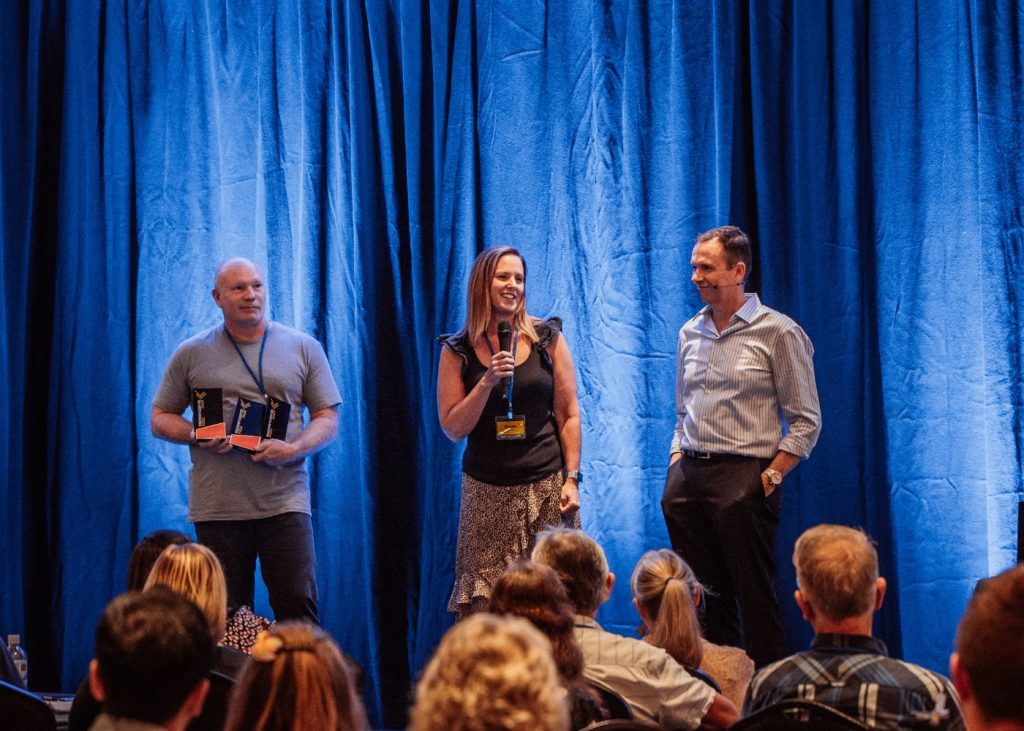
Pete & Renee leveraged their business quickly by hiring local staff
See how they carefully calculated each hire to support the level of growth at each key stage of the business…
Matt: One thing that stands out about your journey is that both of you have come from a corporate background. And I noticed for your business, you started employing staff really quickly.
From the beginning, you never ran it as a solo small family-run business. In fact, you even hired some of our very own Champion students, people from within our community that we’d personally trained for their digital skills. So, you knew they could build websites.
Can you give us a sense of once things started to take off, who were your first hires?
Renee: We first hired two Champions to work around SEO and websites with us. Taking on new staff is an expense. So, we hired on a part-time basis because that’s what suited us.
Our third hire was also part-time. This hire was because we could see the expansion in the local SEO, and Google Business Profiles, etc.
So then, we had three part-time staff, two of whom were Champions. We went on to hire another Champion as a full-time position. We did that because the other two Champions were working part-time, and were also growing their own businesses. So, it was helping them, and helping us on a journey pathway.
I come from a corporate background where it was all about systems, processes, and tracking. I was very big on looking at how much time we were investing in things, and what’s more cost-effective.
As an example, we were outsourcing website builds to assist us in building them quicker. I sat down and worked out how much time we were actually spending as a business going back and forth. More importantly, within my calculations, I was looking at how much time outside of normal business hours we were working.
And I found it was just as beneficial for us to have someone on the ground here in Australia. That way, we could go and talk to them. If there were any issues, they could fix them straight away. So, we ended up employing a full-time work developer as well for the business.
They also changed their office as their local team & services grew…
Matt: Were you still working from home at that point? Or did you have your office in Burleigh by then?
Renee: At that stage we were in an office:
- Initially, when it was just the two of us, we worked at home.
- We then went to a shared office space, while our staff were working from home.
- We then moved into an office with our staff on the Gold Coast.
- And then we moved to another office in Burleigh, and that’s when we got our website developer.
So, we had an onsite website developer, and local SEO specialist. We then hired another SEO employee, full-time.
…Eventually purchasing their own office, adding a valuable asset to their business
Renee: But then we started to outgrow that business. So, we moved to another premises, and expanded our services into paid advertising. And that’s when we ended up buying our own premises here in Burleigh.
Matt: And that’s how you get rich. There are lots of businesses that I’ve sold over the years. You buy your premises through your super fund and when you do the sellout, you sell the premises as well. So you pay yourself rent.
Renee: Yes, exactly.
Matt: Congratulations guys. You’ve bought yourself a very nice office space there in Burleigh. And how far is that from home?
Renee: It’s about five minutes from home and also from the kid’s school. So, it’s like a triangle.
Matt: Yes, your business is now paying for the office. This setup is quite different compared to when you worked in corporate, right? In corporate, they pay you a lot of money, but in the end, you get nothing out of it.
But now, you’ve got two big assets: you’ve got a business asset from which you’re going to do a multimillion-dollar exit, and you’ve got physical premises (real estate) out of it as well.
It’s all out of thin air, and came from ideas in your head that started 10 years ago.
Renee: That’s right.
Matt: And more importantly, you’ve built this business around your family in a beautiful place like Burleigh, Gold Coast. It’s one of the most famous beaches in Australia, and is stunningly beautiful. It’s a very popular tourist place when the school holidays are on.
Why Pete & Renee choose to hire their staff in Australia
Matt: It is so cool hearing your success story of how you created this amazing business. As you know, we teach people how to create online businesses. A part of that is using outsourced staff in other countries to help complete certain tasks.
Renee, you previously mentioned that you did all the numbers when you were hiring. But what was the decision for using local people versus your typical techies and staff like virtual assistants in the Philippines that we can hire on Upwork?
You guys had a complete opposite approach. You’ve wholly and solely hired locals who come into your physical office premises there in Burleigh. Has that been a lot tougher? And why did you pay the extra salary for hiring locals, because I’m presuming that it costs a lot more money to do it that way?
Renee: It does cost extra, but then we can charge our clients extra as well because they are getting quality staff members who understand the market. Our staff are based in Australia, so they know what businesses within Australia are doing.
And it’s the same concept for our content. We have our content writer in the office, and we’ve also got localised content writers. This works well because, from a time perspective, they get what we’re talking about. You can just pick up the phone and say, “I need content written,” which makes it so easy.
The other benefit of having local staff is that our clients can talk to them firsthand. We’re always here, and we can go out and see them face to face, or via Zoom meetings. The biggest thing is that we understand their market within the country. In saying that, we’ve got international clients as well, so we don’t just do Australia.
So, it is getting that solid foundation but still having the staff who have the ability just to get on a Zoom or a phone call. Also, our clients can drop into our office if they need to. That’s our real differentiation and is what a lot of people really like about us.
How local staff helps service their multi-million dollar clients
Renee: Over time we have also changed our focus as to who our ideal clients are. So, everything is a journey. We have gone through every stage of growing this business from outsourcing to smaller business players in the market and they all have a place.
Today, our ideal clients are the multimillion-dollar turnover business. They’re our ideal clients. And because of our setup, we have the ability to give superior service. We believe having our staff on the ground here is what gives us that differential to other companies.
Matt: Absolutely. And so it’s been a very smart decision on your behalf to hire locals because it is a much more personalised service. The client can speak to your team members.
You also have your eyes focused on an exit one day. So, you’re not building the business around the two of you, it’s built around your team members. This makes your business very sellable down the track.
This has all worked out extremely well for the two of you. It’s been a very smart move hiring local people and that’s given you a competitive advantage by the sounds of it.
Renee: Absolutely.
Matt: Really well done. It was a gutsy move in the early days though, wasn’t it? Compared to other Champions, it was harder for you guys profitability-wise because you’re investing in the business upfront, rather than going for the cheaper option.
See how Pete went from charging $500 to $5,000 per month for SEO clients!
Matt: But now it’s gone exponential for you in that it’s given you a competitive advantage. And this is where it gets exciting.
For our complete beginners, let’s look at what you charge now. What’s the average engagement fee you charge for ongoing SEO?
Pete: Well, once upon a time we were afraid to ask for just $500 a month. Just to put it into perspective, when I came up with $500 a month, I would feel so shaky. And I told someone that was the fee, I almost felt like I was a criminal.
Matt: Wow. It’s interesting to hear how scared you felt when charging $500 a month for ongoing SEO. In the early days, your first goal was to find clients for $500 a month. Your aim was to get 10 of those clients and then you’re on your way. That was your first goal?
Pete: Absolutely.
Matt: So if you’re a beginner reading this, Pete’s been there, done that.
So, what’s it like now, Pete? From shaking in your boots at $500 a month, what do you calmly ask for these days?
Pete: Our starting point has gone from $500 to $5,000.
I will say it’s so much easier asking for that because we’ve got the experience of all those years behind us. We know a lot more now than we used to.
We also have over 100 five-star reviews, we’ve earned business awards, and have a local team on the ground. All these things help.
I don’t look at it as a selling anymore when I’m talking to people. It’s just education, telling them what we know and how we can help them. And then the sales aspect of it just comes naturally to the end of the conversation.
Matt: And obviously, $5,000 a month gets you a lot quicker towards your financial goals than $500 a month.
They provide customised packages that suit their corporate clients’ needs
Matt: Is your main focus still the ongoing SEO recurring income?
Renee: We have three core areas that we focus on:
- SEO
- Paid Advertising
- Website Builds
The SEO and paid advertising provides ongoing recurring income for us. But the websites are just as big as what the ongoing income is.
We now have two full-time developers, and our website builds come from leads that just walk in the door. People think the websites are what they want, but we give them what they need. Yes, you can have your website, but it’s not producing anything for you on an ongoing basis.
So, we deliver a package to what they need for their particular industry. And the strategy could be a combination, depending on what’s needed.
For a lot of our clients, the strategy could include SEO, paid advertising, Digital PR, and there could be some CRM work in there too. It’s all custom-made to what they want. If something’s happening in the industry, we can increase one portion, and decrease the other. We can adjust it to achieve their online lead generation goals.
And by having those bigger clients, they have a much bigger budget as well. So, we have the flexibility of being able to adjust it, and they really do see us as their partners. So, what we say is what they’re happy to do.
Matt: Okay, awesome.
They now charge a minimum of $10,000 for website builds…
Matt: So, building websites is still a big part for you. How much do you charge for typical website builds? And Pete again, what did you use to charge for website builds and what do you charge these days?
Pete: I remember the first few we did, we did for free. I couldn’t ask anyone for money. And as time went by, we would rebuild them again for a small fee. We would look back at our original sites, and say “Oh my God, have a look at that. Take our logo off that. That’s embarrassing!”
So, then we would go back and suggest we rebuild the sites. We may have charged something like $1,000 back then. And again, we probably didn’t discuss it, we just cheekily sent them an invoice. We were too afraid to talk about money.
Matt: There you go.
Pete: Fast forward a few years, we now charge an average price of $10,000 for a website build.
But if you’re at the beginning of the journey, there’s a benefit to websites in the $5,000 price range as well. Don’t just jump in at $10,000, because there’s a lot more work required at that level. Typically it would involve a lot more SEO and strategy.
But when you’re at the beginning of the journey, you can build $5,000 websites pretty quickly.
We went through a period where we probably went away from that price point. But now we’ve got two developers, systems and processes. So, we know we can complete these builds within 30 to 40 days with content. Or if there’s no content involved, it would be a lot quicker than that.
There’s much to be made quickly in that price range. So if you see people around you getting $10,000 – $20,000 builds, don’t be completely discouraged by that. Sometimes a $20,000 build can take 2-3 months. And at the end of it, there’s not a whole lot of money for you in terms of profitability.
And we’re just lucky that Renee spent countless hours calculating this. The numbers sound attractive at the beginning, when someone says to you, “Here’s $20,000.” But you need to look at the margin.
Matt: Well, that’s what we teach. You earn while you learn, starting small just like Pete did. You might even build websites for free in the beginning, then slowly step it up.
…Website builds for under $5,000 can still be very profitable
Matt: As Pete’s been sharing with us, you hear all these stories of people charging $10,000 – $20,000, but there’s nothing wrong with charging $3,000-$5,000 for a website build either. They’re pretty darn easy.
Pete, I remember a coaching call I did with you back then. At the time you were building what you thought was a really small site, but you’d already stepped it up. And I remember you saying to me, “Matt, it was the easiest money I’ve ever made in my life. I made $3,000 for helping this guy out with this amazing site.”
The client was over the moon, and you made nearly $3,000. You had your website developer build it; you didn’t have to build it yourself. I remember you laughing, saying you paid him $800 to build the site. The rest of the money you got for the sake of a few phone calls, which is pretty cool. And the client was really happy with the results.
So, it’s interesting that after crunching all the numbers and looking over these 10 years, you can see that, hey, there’s nothing wrong with smaller site builds as well.
Pete & Renee now own an Award-Winning digital agency!
…beating other big agencies across the country
Matt: What sort of awards are you starting to win? You won multiple awards from us, including our eBusiness Institute Student of the Year. What are some of the other impressive awards you’re winning?
Renee: Pete and one of our staff members went down to the APAC Search Awards, and we were pretty confident that we were in the running for one. We had six nominations there. One of them was also for the Young Search Professionals, which one of our staff were nominated for.
The first award we won was the Local SEO Award. It was a great privilege.
Matt: Well done guys.
Renee: We had quite a few others in there, too. We also won the Best SEO Campaign Award. There were some really big online digital marketing agencies that we were competing against, and their clients were big players within their industries as well. So, that was amazing.
The boys were at awards which were held in Melbourne, I was back in the Gold Coast, and there was no live feed. So, I was watching the videos as they were sending them through. And the first award, they were so excited, they even knocked some chairs over!
They were still really excited for the second award, which was the Best Integrated Agency Awards. You could tell the look on the boys’ faces, “We’ve got this one.” And when Digital Surfer was called out, it was the best award out of all of them. They just screamed, “Oh yes, that was us!”
They have become a nationally recognised agency in the APAC region
Renee: We took out three awards that night. Out of all of the big agencies across the Asia Pacific that were there, we took out the most. Here we are, a little agency called Digital Surfer that not many people knew about, but they definitely know us now.
Since then, we’ve been getting into a few other connections. Our brand online has gone up that exponential curve. We even have connections with Microsoft that we’ve been able to establish since then.
And yes, we’re still getting other APAC awards. The APAC Search Awards are one of the biggest ones in the market, including Semrush Awards and APAC Insider Awards.
Matt: And this is what I want our readers to realise. It’s from little things that big things grow.
You guys never thought you’d be here these days in your beautiful modern premises that you’ve just built at Burleigh. And it’s not just a lifestyle business, it’s gone way beyond that now.
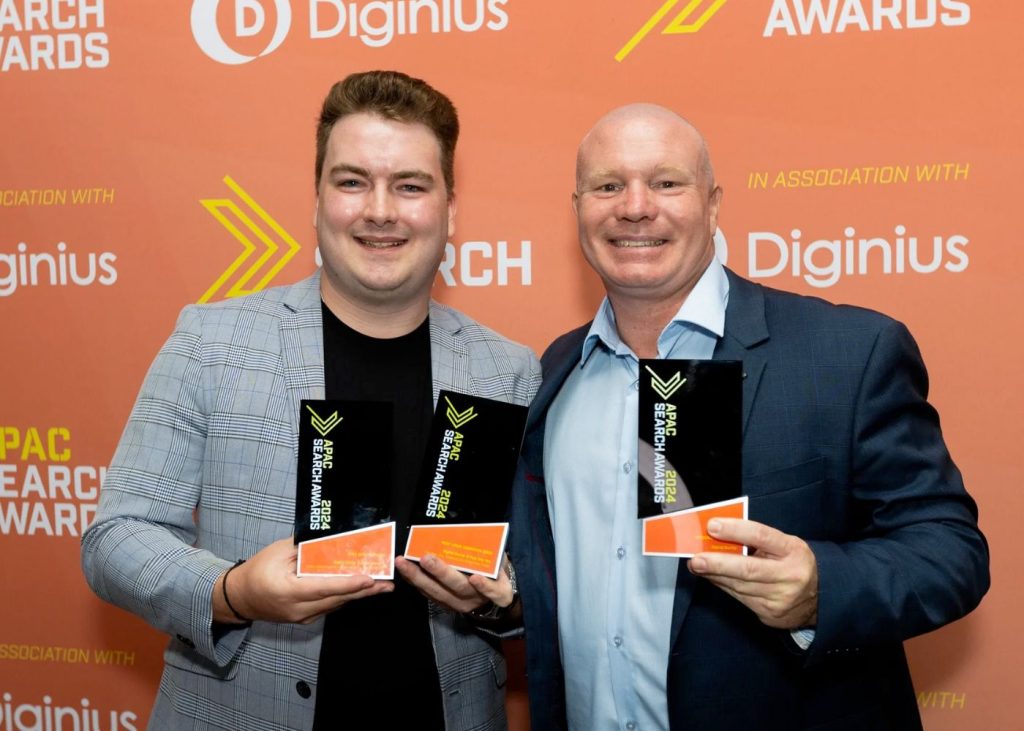
Their hard work over the last 10 years has built them the ultimate lifestyle business
Matt: I want to say a big congratulations and thank you for inspiring so many people in our community.
Not just the burnt-out corporate story, parents with three kids, starting a brand new business. But showing how you can grow a small digital agency into something very significant.
As you said, Renee, not many people have heard of Digital Surfer, but you are winning awards against big digital agencies. That’s what I love about this online space. These small guys can take on the big ones, and that’s what you’ve both done very effectively.
So, congratulations. You’ve nailed it on every front, in all parts of your triangle, mission accomplished! As a leading SEO agency in Australia, do you pinch yourselves when you look back at these 10 years?
Renee: We definitely pinch ourselves. But we quite often have a conversation that goes, “Wow, that was 10 years ago? It feels like yesterday.” The journey on where we have gone is probably our biggest win in how we’ve developed ourselves.
As we said right from the start, we were both in the corporate world (PAYG), and had no idea about running a business. It’s all just about learning. Some people think that failing is a bad thing, but I couldn’t tell you how many things we have failed.
No matter what we fail at, whether that’s a business decision that we’ve made that’s wrong, whether that’s a client that we’ve actually lost every single time, we will sit back and go, “What could we do differently? What did we learn from that?” And then we move and change to do that.
So success is just the cream on the top. It is the continual growth of us personally and celebrating the amazing successes that we have and the amazing team that we have built to work with us. Without our team, we wouldn’t be where we are today.
Matt: It’s been unreal to hear your update and to celebrate this moment. A big congratulations on all the awards that you have recently won. But more importantly, a big congratulations on your journey. Thank you for sharing your journey with us so openly over the years.
I think you have both shared some amazing insights into your success. You went straight into the team-building side of things. And as a result, you’ve built an award-winning digital agency called Digital Surfer.
If you’re a corporate looking for SEO, go and chat to these guys. They are your people. You’ve just read how good they are.
Renee: Thank you, Matt.

